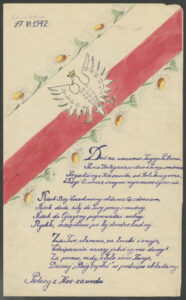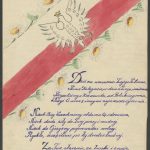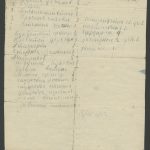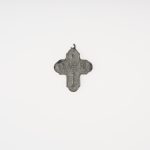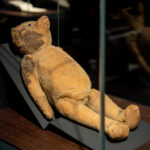Adolf Saraniecki was born in 1884 in Holoskiv in the Nadvirnia district to Piotr and Teofila, née Drohomirecka. After graduating in law from the Franciscan University in Lviv, he worked as a judge and prosecutor and was a member of the Polish Sejm of the first term from 1922 to 1927.
After Lviv was occupied by the Soviet army, Adolf and his family (his wife Wanda, daughters: Aldona, Danuta and Irena, and mother-in-law Malwina Jackowska) were deported in April 1940 to Kokpety, deep into the USSR. Following the Sikorski-Mayski agreement, the family moved to Semipalatinsk, where Adolf was appointed delegate at the Polish Embassy.
After relations between the Polish government-in-exile and the USSR broke down, Saraniecki was arrested. He was sentenced to a stay in a gulag for refusing to accept Soviet citizenship. Saraniecki was allowed to leave the Soviet Union with Anders’ Army, but he refused, deciding to stay with the people who did not get this chance. He died in 1944 in the gulag in Mariinsk.
The deportees appreciated his efforts to help them: he received greeting cards and poems written in his honour. Some of these have been donated to the Sybir Memorial Museum.




